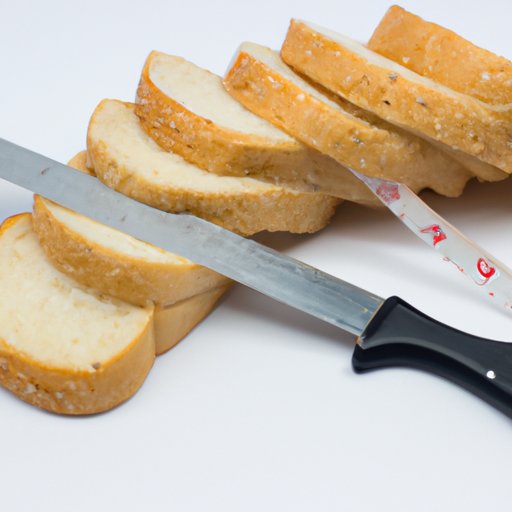
Introduction
The topic of bread and weight gain is one that has sparked numerous heated debates in recent times. A lot of people swear that bread is the main culprit behind their bulging waistline while others refuse to give it up entirely. Amidst these varied opinions, it’s difficult to know the truth- does bread really make you gain weight? This article seeks to debunk common misconceptions surrounding bread and weight gain and offer you tips on how to manage your carb intake better.
The Truth About Bread and Weight Gain: Debunking Common Misconceptions
A lot of people believe that carbs in bread are bad for weight loss and that cutting out bread will help them lose weight. However, while it’s true that bread is a significant source of carbohydrates, not all carbs are created equal. Some carbs are simple, while others are complex and come from whole grains. Another common misconception is that bread causes blood sugar spikes that lead to insulin production and weight gain. The reality is that blood sugar spikes as a result of eating any carbohydrate-rich foods, not just bread.
Bread and the Scale: Bridging the Gap Between Carb Consumption and Weight Management
The role of carb intake in weight management is a complex issue, as different bodies react differently to carbs. However, the overall consensus among most health professionals is that calorie intake and portion control are two significant players in healthy weight management. This means that eating bread, a significant source of carbs, in moderation, can be a part of a balanced diet. Avoiding bread completely, on the other hand, may lead to nutritional deficiencies and unnecessarily eliminating a food group.
Rethinking the Bread Basket: How Portion Control Can Help You Enjoy Bread Without Packing on the Pounds
One effective way to incorporate bread into your diet without gaining weight is through portion control. This simply refers to eating smaller amounts than you typically would. For instance, instead of having three to four slices of bread with your meal, opt for one or two. Another tip is to use smaller plates; it tricks your mind into thinking you’re eating more than you really are. With this method, you can still enjoy bread without overindulging.
Flour Power: Understanding the Role of Bread in a Healthy Diet
It’s worth noting that not all bread is created equal. White bread, for instance, contains fewer nutrients than whole-grain bread. Whole-grain bread is made from whole grains and contains all the beneficial fibers and antioxidants that can help reduce the risk of some chronic diseases. Additionally, some gluten-free bread can be high in fat and calories, negating any health benefits it may have had. It’s therefore important to make informed decisions based on the type and quality of bread you consume.
Breaking Bread: Exploring the Relationship Between Bread, Appetite, and Weight
Bread can affect appetite and satiety, which can have an impact on weight management. Bread can be either filling or not depending on its fiber content, making it important to choose bread high in fiber or to add fiber-rich ingredients, such as nuts or seeds. Additionally, some bread contains hidden sugars and fats, which can cause an increase in appetite that may result in overeating. To manage this, it’s essential to read the ingredient list and be diligent about choosing healthy bread options.
To Bread or Not to Bread: A Comprehensive Guide to Making Informed Decisions About Your Carb Intake
Carbohydrates are an essential part of a healthy diet, and bread can be included in moderation. Checking the ingredient list and opting for whole-grain bread high in fiber and free from added sugars is a wise choice. Moreover, incorporating other healthy foods such as lean proteins, vegetables, and fruits alongside bread can ensure that your dietary needs are well balanced, and you will not fall short in any essential nutrient. Pairing this with physical exercise can help ensure that your overall health is addressed.
Conclusion
In conclusion, bread does not have to be the enemy, and neither does it have to be the primary cause of weight gain. Making informed decisions about your carbohydrate intake can help you balance your diet and incorporate bread in moderation. With portion control, an adequate amount of fiber, and an excellent awareness of the ingredients in your bread, you can enjoy bread without packing on the pounds and with added health benefits.




